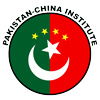Salaam-Confucius: Connecting Cultures Across the Economic Corridor
Source : Pakistan China Institute Date : 08-09-2015 By : Amna Javed
 |
Boasting a festive look, the Pakistan-China Friendship Center opened its doors to the public on Monday, 7th September 2015 for the inauguration of the biggest cultural event to date in the history of Pakistan-China relations in the non-governmental sector.
Hosted by the Pakistan-China Institute, in collaboration with the Broad Link Cultural Creative Group of China, and the Tsinghua University, the Salaam-Confucius Exhibition was part of the celebrations marking 2015 as the Year of Friendly Exchanges between the two countries, and is also the first time this exhibition has been held outside China in a country of the Muslim World. With President Xi Jinping’s visit and the official inauguration of the China-Pakistan Economic Corridor in April this year, 2015 has been a momentous year so far for both the countries. As work begins on the Economic Corridor, the relevance of increasing cultural linkages and building bridges between the people of both countries has increased significantly. Senator Mushahid Hussain Sayed, Chairman of the Pakistan-China Institute, has laid great stress on the need to supplement the Economic Corridor with an Information Corridor as well as a Cultural Corridor, as this would not only direct people from both countries towards engaging as stakeholders in a new era of prosperity and economic development, but would also promote cultural connectivity and affinity.
To this end, the Pakistan-China Institute took the initiative of organizing the mega-event themed ‘Salaam-Confucius: Connecting Cultures Across the Economic Corridor’. At Pakistan-China Institute, the primary aim for fostering such activities is to develop a deeper understanding of the socio-economic impact of the corridor on China, Pakistan, and the broader region, as well as to raise awareness about the convergences in Chinese and Pakistani societies and their cultural traditions.
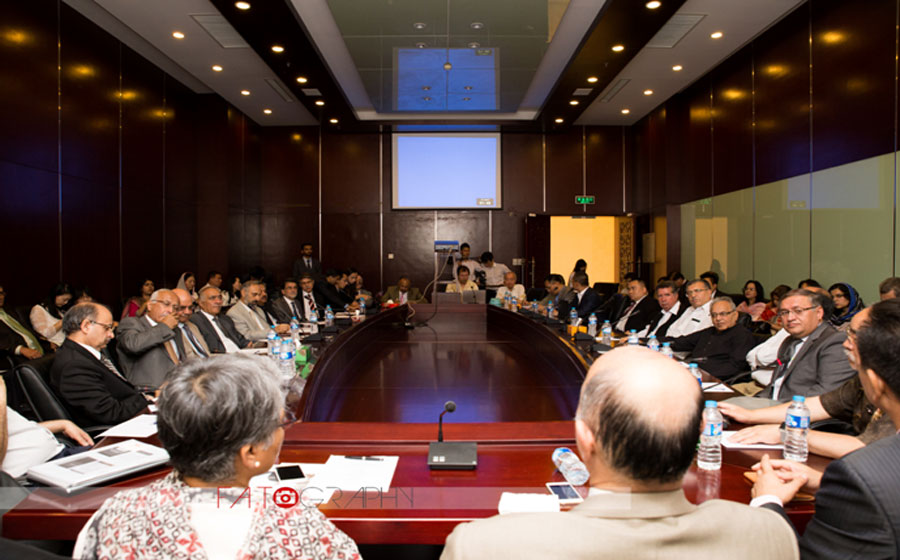
The day kicked off with an intriguing roundtable discussion on ‘China-Pakistan Relations: Corridors, Culture and Connectivity’. The session, moderated by Dr. Dushka H. Saiyid, Editor of Youlin Magazine – Pakistan’s only bilingual cultural journal – discussed in great detail, the importance of preserving cultural heritage along the Economic Corridor. Professor Li Xiguang, Director of Tsinghua International Communications Center at the Tsinghua University and one of the key discussants at the roundtable, had led a delegation of students and professionals from Kashgar in Xinjiang, China, to Gilgit-Baltistan in Pakistan via road, having arrived in Islamabad two days earlier. The purpose of undertaking the journey was to interact with local population along the route and explore the cultural heritage of these areas. The delegation also took a keen interest in filming their journey, as it would later be converted into a documentary depicting the culture, history, heritage and people on the Pakistani side of the Silk Road, with a particular focus on Gilgit and Hunza. Professor Li described his journey from Kashgar to Hunza and shared his insights about discovering Chinese inscriptions on rocks in Hunza. “Narrating the story of a Chinese traveller, these inscriptions bear witness to the longstanding friendship between China and Pakistan,” remarked Professor Li Xiguang. Mr. Salman Beg, CEO Aga Khan Cultural Services Pakistan, delineated the efforts being undertaken by AKCSP to ensure the preservation of cultural heritage, while also underlining the possible challenges the region could face with the influx of tourists from China. Since the current population of Hunza is not very large, the preservation activities have borne fruit; however, with a considerable increase in the number of tourists, ensuring the safety of cultural heritage and historical sites could become a daunting task. Besides this, the panelists also took the opportunity to discuss security threats along the Corridor.
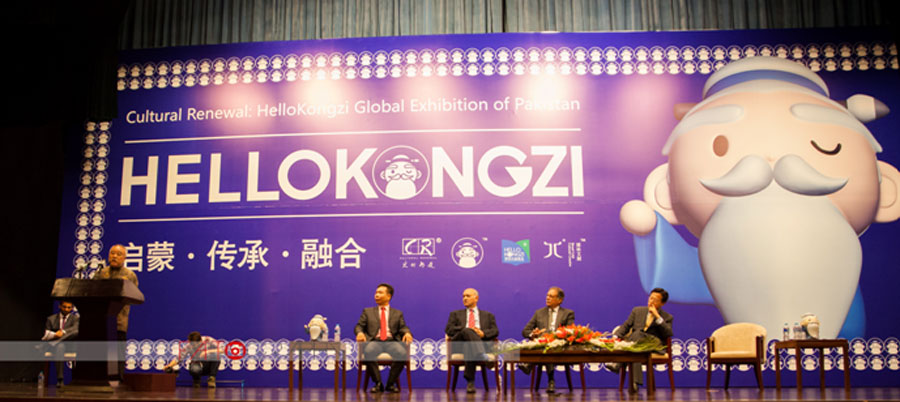
Later in the evening, the launching ceremony of the Salaam-Confucius Cultural Exhibition also took place, which was attended by numerous foreign dignitaries, parliamentarians, academicians and the general public. Federal minister for Culture, Information, Broadcasting, and Heritage, Senator Pervez Rashid, was the Chief Guest at the ceremony, while Chairman of the Broad Link Cultural Creative Group Mr. Lin Youwu, H.E. Acting Ambassador for China Mr. Zhao Lijian, and Professor Li Xiguang from the Tsinghua University were also present alongside the Chief Guest.
In his Welcome Address at the opening ceremony, Senator Mushahid Hussain outlined the impact that the teachings of Confucius have had on China and other Asian civilizations. He was of the view that the teachings of the great philosopher hold relevance for different cultures and countries till today. “Culture is probably the biggest antidote to any form of extremism and ideas that are outdated,” he remarked.
Senator Pervez Rashid’s keynote address echoed a similar stance of conveying the message of love and harmony through cultural exchanges. "We reject the notion of a clash of civilizations. Pakistan not only desires the protection and promotion of cultural diversity but also advocates a dialogue among cultures," he emphasized.
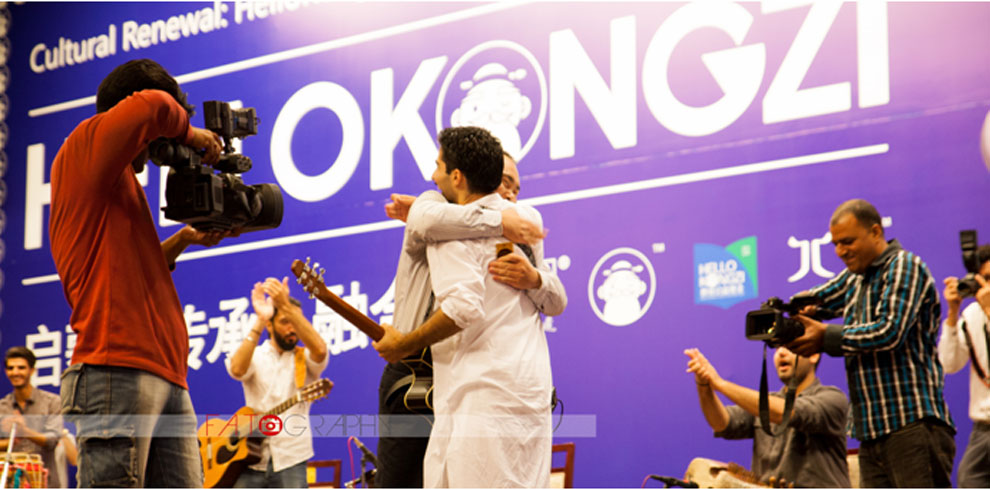
Following the same theme of harmony and coexistence, other speakers, including Mr. Lin Youwu, Mr. Zhao Lijian and Professor Li Xiguang, also emphasized the need for increasing cultural exchanges between the two countries.
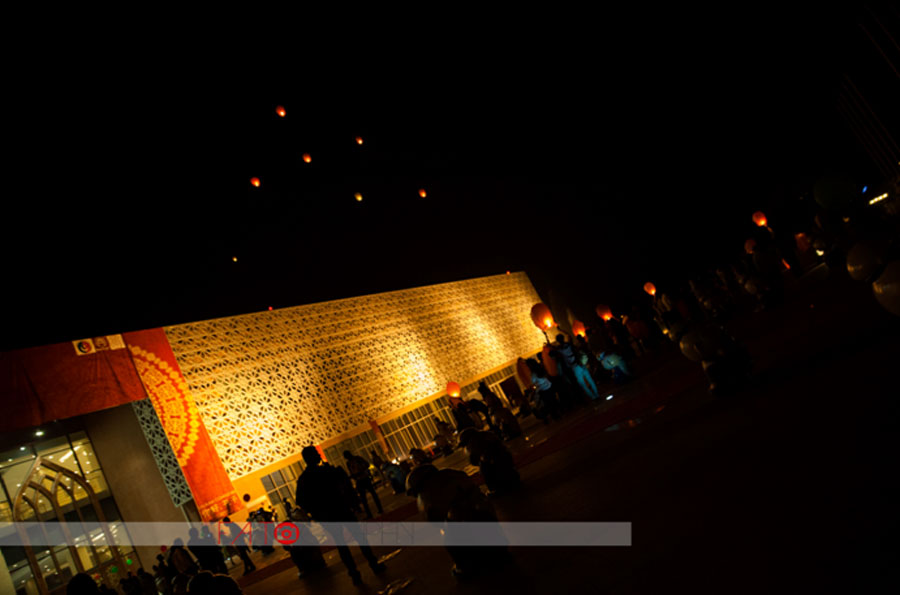
The session was followed by an elaborate flying lantern ceremony and an exhilarating performance by the Peshawar-based band, Khumariyaan. The concert was a treat for the audience comprising of diplomats, Chinese delegations, local university students and families.
